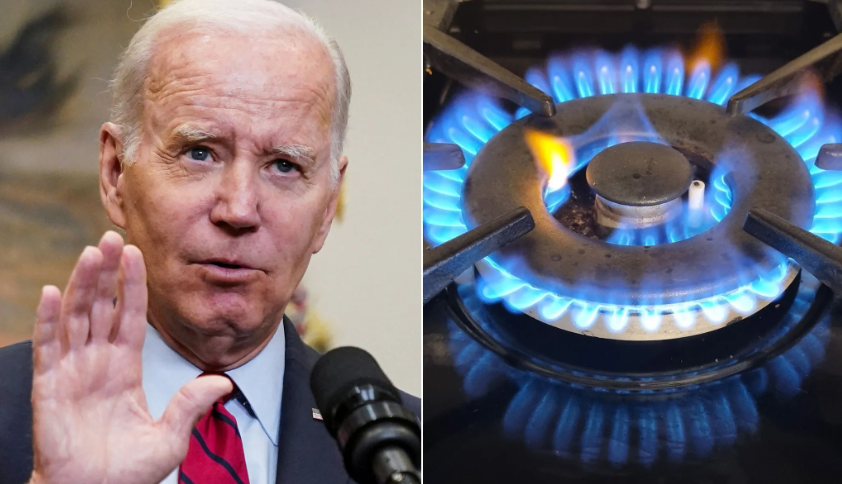As New York’s leaders continue their fight against gas stoves, a vocal group of legislators, doctors and scientists is urging Governor Kathy Hochul to pass the NY Home Energy Affordable Transition Act. This comes just months after Hochul’s decision to ban gas stoves, furnaces and propane heating in new residential buildings in the Empire State.
During a virtual press conference this week, the group presented a new report that supports the argument against any kind of gas-powered appliances. The proposed legislation would not only allow the decommission of natural gas pipelines and plants but also expedite the transition away from using natural gas for heating or cooking in all New York homes.
The bill, which passed the Senate with a 39-23 vote, is now back in committee in the Assembly with 71 co-sponsors. The governor’s move to ban gas stoves has been met with controversy and even resulted in a lawsuit from a coalition of business owners, workers and unions who are concerned about the potential high cost of switching to electric.
But this new 600-page report released by the Concerned Health Professionals of New York and the Physicians for Social Responsibility highlights the dangers of using natural gas appliances. The experts behind the report argue that at every stage, fracking releases toxic chemicals that not only pollute the environment but also pose a real hazard to workers and tenants alike. Fracking, which is not allowed in New York, is known to release substances such as nitrogen dioxide and benzene that are harmful to human health.
The report also claims that gas stoves emit pollutants that contribute to 1 in 5 childhood asthma cases in the state. This has led the authors to refer to gas stoves as the “terminus of the fracking pipeline.” According to the report, these stoves are responsible for emitting nitrogen oxides, carbon monoxide, benzene and other fine particulate matter, all of which have been known to have negative health effects, such as respiratory symptoms and certain cancers.
Moreover, the report states that homes with gas stoves have 50% to 400% higher concentrations of nitrogen dioxide compared to homes powered by electricity. This poses a serious health risk, as these indoor levels of pollution can easily exceed health guidelines and would be considered illegal if they happened outdoors.
The proposed bill would also do away with the “100-foot rule,” which requires customers to pay a monthly fee for the construction of natural gas pipelines within 100 feet of their homes even if they don’t need them. This could result in significant savings for households, especially for low-income and working-class populations who often “bear the brunt” of natural gas pollutants due to living in smaller, older and less ventilated spaces.
New York State Senator Gustavo Rivera, who serves as the chair of the health committee, emphasized the importance of these savings for these communities. “This is money that they can use for their rent, for medicine, for food,” he said.
With the passing of this bill, New York would take a major step towards a cleaner, healthier and more affordable future for its citizens.

